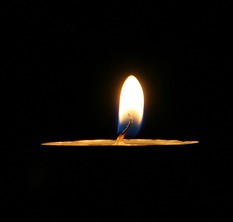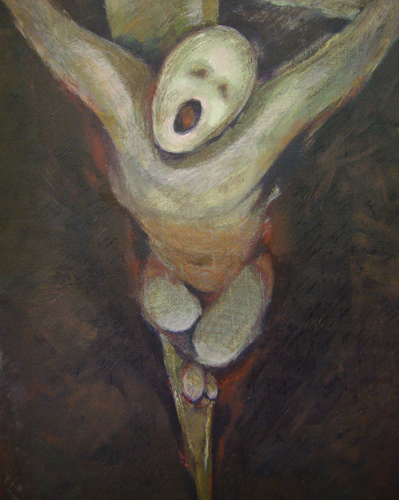The Theology Workshop is pleased to be able to co-sponsor an exciting event with the Lumen Christi Institute. This Thursday, February 2 at 7:15 PM, Prof. John Cavadini from the University of Notre Dame will give a lecture entitled “The Grand Design: An Augustinian Reply to Stephen Hawking.” The event will be held in Social Sciences 122.
Stephen Hawking has recently declared that philosophy is dead, and that science is the only reasonable method for securing knowledge. In response, Professor Cavadini will argue that philosophy is rooted in man’s wonder about the universe, and that scientific inquiry is only one aspect of true wisdom and should not be privileged over others.
John Cavadini is Associate Professor of Theology at the University of Notre Dame. He specializes in patristic and early medieval theology, the theology of Augustine, and the history of biblical and patristic exegesis. He has published extensively in these areas, as well as in the theology of miracles, the life and work of Gregory the Great, and the theology of marriage.
This event is free and open to the public. For Directions, visit: http://maps.uchicago.edu/mainquad/social.html
Persons with disabilities requiring assistance, please call 773-955-5887

 In his presentation, Andrew will analyze two competing logics surrounding Evangelical interpretations of biblical authority. On one hand, Evangelicals would agree that (1) God created a good world that quickly rebelled against God, (2) that God covenanted Godself with people that were repeatedly unfaithful to God, and (3) that God’s continued presence and action among us is the clearest sign of God’s own faithful love for the world. Rather than engineering a world or a history that is “infallible” or “inerrant,” we see God giving and affirming creaturely freedom, co-creativity, and co-authority, what he will call a logic of “creationality.” On the other hand, Evangelicals insist that Scripture is an exception from this pattern, in which God works so successfully that Scripture remains spotless from error or internal disagreement, which he interprets as a logic of “sovereignty.” We will interrogate the argument that the Evangelical doctrine of a Scripture that cannot fail betrays the wider biblical commitment to a God who does not work through unmediated, absolute force but through mediated, response-able inter-action, which leaves room for Scripture to be a) authoritative and b) accompanied with error, which c) isolates the continuing demand for genuinely critical-and-committed reading and action.
In his presentation, Andrew will analyze two competing logics surrounding Evangelical interpretations of biblical authority. On one hand, Evangelicals would agree that (1) God created a good world that quickly rebelled against God, (2) that God covenanted Godself with people that were repeatedly unfaithful to God, and (3) that God’s continued presence and action among us is the clearest sign of God’s own faithful love for the world. Rather than engineering a world or a history that is “infallible” or “inerrant,” we see God giving and affirming creaturely freedom, co-creativity, and co-authority, what he will call a logic of “creationality.” On the other hand, Evangelicals insist that Scripture is an exception from this pattern, in which God works so successfully that Scripture remains spotless from error or internal disagreement, which he interprets as a logic of “sovereignty.” We will interrogate the argument that the Evangelical doctrine of a Scripture that cannot fail betrays the wider biblical commitment to a God who does not work through unmediated, absolute force but through mediated, response-able inter-action, which leaves room for Scripture to be a) authoritative and b) accompanied with error, which c) isolates the continuing demand for genuinely critical-and-committed reading and action.
 Our first presentation is that of Evan Kuehn, 2nd year PhD student in Theology. Evan will offer a constructive proposal inspired by Schleiermacher’s Glaubenslehre that incorporates his account of the threefold office of Christ into a new reading of the cry of dereliction. It will propose an interpretation that revises Schleiermacher’s explicit conclusions about the event of Christ’s abandonment by God while hewing closely to the structure, content, and purpose of Schleiermacher’s doctrine of the person and work of the Redeemer. Instead of following Schleiermacher by interpreting the godforsakenness of Jesus as problematic for His unique and persistent dignity as Redeemer, Christ’s godforsakenness will be explained as the end of the prophetic office of Christ.
Our first presentation is that of Evan Kuehn, 2nd year PhD student in Theology. Evan will offer a constructive proposal inspired by Schleiermacher’s Glaubenslehre that incorporates his account of the threefold office of Christ into a new reading of the cry of dereliction. It will propose an interpretation that revises Schleiermacher’s explicit conclusions about the event of Christ’s abandonment by God while hewing closely to the structure, content, and purpose of Schleiermacher’s doctrine of the person and work of the Redeemer. Instead of following Schleiermacher by interpreting the godforsakenness of Jesus as problematic for His unique and persistent dignity as Redeemer, Christ’s godforsakenness will be explained as the end of the prophetic office of Christ.